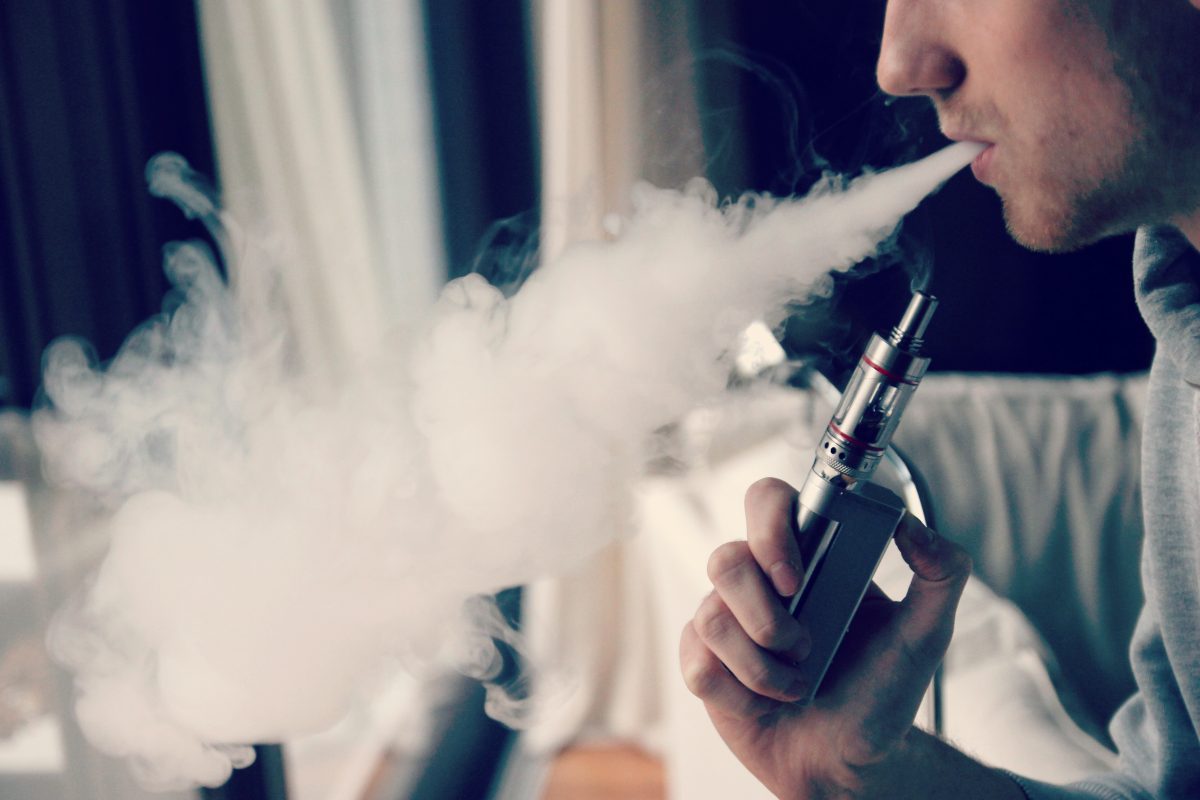Almost a fourth of college students vape, according to the National Institute of Health. The push to ban vapes due to their appeal to children has grown globally, with the FDA banning flavored vapes in 2020 and the UK planning to ban all disposable vapes by 2025.
Over 13.1 million disposable vapes were sold last year, according to the CDC. Lined up, that’s over 7,000 miles of disposable vapes with no standard method of recycling — most of which end up in landfills.
Beyond the non-degradable plastic shell of disposable vapes lies a lithium ion battery, containing cobalt and hazardous nickel that powers the vape. This same battery is then tossed into landfills, releasing heavy metal toxins into the soil and groundwater and increasing the likelihood of years-long landfill fires, according to the Institute for Energy Research.
Over 23.6 tons of lithium go into disposable vape batteries each year and with over ten million units sold, the number is naturally expected to increase.
Lithium is mainly sourced from mines in the global south, Emily Hersh, founder of exploration company Luna Lithium, said.
“The interesting thing to understand is that for lithium to get from the ground into a battery, there’s a lot of scientific steps that have to happen,” Hersh said.
Lithium is found in either hard rock or in brines, depending on its location. It is chemically combined with another element or dissolved in a brine. Hersh said those qualities make it work great as a battery — especially because it’s lightweight and reactive.
Lithium from hard rock mines requires chemical conversion using high heat, which contributes to carbon emissions as well, Hersh said.
Brine, on the other hand, is pumped out of salt flats, which alters the associated aquifer. Every project affects the environment in a different way — a vital reason regulatory oversight from the government is important.
Lithium ion batteries contain cobalt too, according to Hersh, an expensive byproduct of copper and nickel mining.
More than half the world’s cobalt comes from the Democratic Republic of the Congo, or DRC, according to a report by global rights Amnesty International, a global human rights organization.
Children as young as seven have been reported working at these cobalt mines, without proper precautions or equipment.
Illegal mines often employ children and foster unsafe working conditions in the DRC as well, according to Hersh. Texas A&M professor Gunnar Schade, who specializes in climate change, said minorities’ rights are often trampled in the midst of global trade.
“There is an artisanally illegal informal cobalt market that does exist,” Hersh said. “And that is likely the cobalt that’s going to be illegally sold to a trader from China in the DRC.”
Hersh said illegal cobalt mined with human suffering is prevalent in small-name products, making it hard to avoid.
“If you buy a shitty toy for your kids, it could be in that,” Hersh said. “It could be literally in any product that you have that has a battery that isn’t from the type of supplier that’s going to have been forced to participate in supply chain scrutiny.”
It’s difficult to completely cease lithium and cobalt use due to its widespread reliance — especially because it’s a lucrative business, Schade said.
Instead, Hersh said consumers should expect supply chain transparency from companies.
“Responsible sourcing in policies do so much more than trying to not use a thing because they are tangible actionable steps, and they’re a lot less hypocritical,” Hersh said. “If one takes the view that they don’t want cobalt, they can’t have a phone or a computer, and that’s not practical.”
Rather than give up lithium-ion batteries, consumers should apply pressure to companies they purchase from to be transparent about their material sourcing, Hersh said.
“What they can do is, as a consumer or maybe as they buy stock in Apple as a shareholder, they can make it clear to the company: ‘I expect the companies that I purchase from to have responsible sourcing and especially in transparency policy,’” Hersh said.
Transparent policies can deter companies from purchasing from illegal mines. Moreover, it ensures the materials in the product are up to standard. As a rule of thumb, Hersh said, the larger the company, the more malleable they are to shareholder, consumer or regulatory pressure.
Many disposable vape brands, such as GEEKBAR and Puff Bars, are made in China. These vape brands give no indication of where they source their materials from, and their suppliers are virtually unknown.
Banning vapes is not the solution, Hersh said — rather, responsible sourcing policy and an ability to recycle the battery once it’s been used could help.
Recycling disposable vapes is essential to conserving lithium as a resource, Schade said.
“If you don’t throw it away, essentially, over time, you will have to mine less and less lithium,” Schade said.











SG • Sep 26, 2024 at 11:32 am
Good write up!!